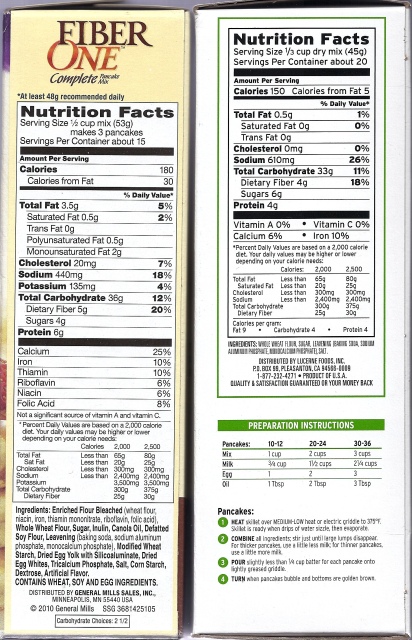Pyruvate instead of ketogenic diet?
Question
Dr Zilberter, I've read on your site brainfuels.com about pyruvate somehow being an alternative to the ketogenic diet? Or, I misunderstood? i mean the post "Not only ketone bodies" at http://brainfuels.com/2009/12/not-only-ketone-bodies-on.html
Dear Linda, my hope is, that eventually, we'll be able to answer "yes". But let's talk about pyruvate properties first.
Pyruvate is a natural product of glucose (sugar) metabolism. Technically, pyruvate is a ketoacid produced in process of glycolysis (splitting) carbohydrates that the body intakes with foods and stores in the form of animal starch glycogen. However, when you take pyruvate as a pure chemical, though completely identical to that coming from food carbohydrates), it enters the cellular energy process beyond the glycolysis and brings in more energy, creating even an excess energy that has to be removed from the body by increasing the heat radiation from the skin.
The fact that with extra pyruvate, the process of glycolysis is used by the cells less, is very important since a non-stop glycolysis is not what is intended for us humans and it is toxic (5) -- but we are talking about the benefits of pyruvate intake. When chronically fed to animals as part of their diet, pyruvate reduced body fat content. These changes appear to be the result of an increased loss of calories as heat at the expense of body fat storage, [which agrees with the biochemical fact mentioned above]. In a study conducted by Department of Animal Sciences and Industry, Kansas State University, USA, an increase in pyruvate activity increase animals' ability to use fat for energy instead of carbohydrates (1).
According to the human studies, pyruvate improves exercise performance primarily by enhancing the transport of glucose into the muscle cell. (3). In a pilot study, joint administration of pyruvate, hydroxycitrate (HCA), and carnitine to obese humans caused a remarkable rate of body-fat loss and and increased heat generation (thermogenesis). (2). Dr. McCarty hypothesized that promotion of liver glycogen storage may enhance satiety and this can be achieved by pyruvate (to be exact, pyruvate carboxylase and fructodiphosphatase), (4). On the other hand, in a double blind, randomized trial using the same dosage of pyruvate during training failed improve body composition or exercise performance while negatively affecting some blood lipid numbers (7).
A different story is about pyruvate ability to protect brain cells against quite a few number of damages. In the post you mentioned, "Not only ketone bodies" at http://brainfuels.com/2009/12/not-only-ketone-bodies-on.html we were talking about pyruvate as an energy substrate and its effect on pathological hyperactivity of brain's neuronal networks (8). This is a very promising results -- but the work is only beginning.
Practical information
Netrition (in my experience, a reputable nutraceutical company at http://alturl.com/73wn) suggests that you take pyruvate for preventing a plateau in dieting. Liver ATP depletion causes a decrease in T3 thyroid hormone which lowers the metabolism and pyruvate can help preventing the decrease. An effective maintenance dose may be 5 grams per day after several days of 20 grams per day. They recommend that you go on a diet with a moderate calorie deficit - about 10 to 15% less than the number of calories needed to maintain your current weight.
Sources
1. Med Sci Sports Exerc. 1998 Jun;30(6):837-43
2. Med Hypotheses. 1999 May;52(5):407-16
3. Int J Obes Relat Metab Disord. 1996 Oct;20(10):925-30
4. Med Hypotheses. 1994 Apr;42(4):215-25
5. http://brainfuels.com/2009/11/calorie-restriction-toxic-glycolysis.html
6. Current Therapeutic Research 1998, 59(11):793-802
7. Nutrition 21 (2005) 312?19
8. Journal of Neurochemistry (in advance of print) Published Online: 24 Nov 2009
- Prev:Allergies?
- Next:Body fat percentage
Related Articles
-
Food Guide Pyramid
QuestionIm trying to combine the new food guide pyramid with a lo
-
weight reduction
QuestionI am 23 years old , my height is 167 cm , my weight is 70
-
dietary supplement
QuestionHi, have you ever heard of a dietary supplement called th
-
Nutrition of German soccer team - can it be good for me too?
QuestionQUESTION: Dear Mrs. Ostrager, thanks so much for decidi
-
Whats the most grams of protein your body can take in 1 day?
QuestionHey, Whats the most grams of protein your body can take i
-
Counting calaories - the best way to lose weight?
QuestionHi tanya, I think you may be the person to ask. Ive been




